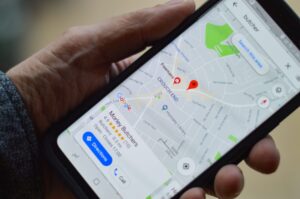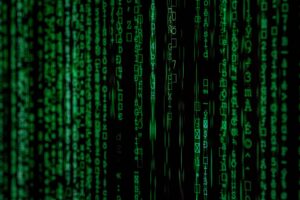China launched cyber-attacks on Ukrainian military & nuclear targets just before the Russian invasion, according to a report.
The UK Govt. is investigating claims, but the Ukrainian Security Service says it has ‘nothing to do with’ the memos obtained by the Times.
The UK also confirmed that the National Cyber Security Centre was investigating the allegations, which claim that more than 600 websites, including Ukraine’s Defence Ministry, were subjected to 1,000s of hacking attempts co-ordinated by the Chinese Govt.
Investigating
A spokesperson commented: “The National Cyber Security Centre is investigating these allegations with our international partners.”
The claims are based on intelligence memos obtained by the Times. However, the Ukrainian security service denied that it had supplied any information on the alleged attacks.
It added: “The SBU has nothing to do with the findings of the Times. The Security Service of Ukraine does not currently have such data & no investigation is underway.”
Vulnerabilities
Jamie MacColl, a Research Fellow at the Royal United Services Institute for Defence & Security Studies, explained that the reported attempts seemed to ‘fit’ a Chinese tactic of scanning for vulnerabilities in IT infrastructure, e.g. firewalls & virtual private networks (VPNs).
“This sounds relatively routine to me, if true. Some Chinese groups have been re-tasked to collect intelligence on the Ukraine conflict. Security agencies collect information to inform policy. That is what appears to have happened in this case.”
Intelligence Memos
The Times relayed a series of intelligence memos, thought to be prepared by a foreign country, which showed the size of the hacking, & included nuclear targets, which allegedly peaked on Feb. 23, the day before the Russian invasion.
On Mar. 18 the US President, Joe Biden, warned his Chinese counterpart, Xi Jinping, of “consequences” if China provided material support to Russia during the invasion.
Xi & Vladimir Putin met in Beijing at the start of the Winter Olympics in Feb. & issued a joint statement saying the bonds between the 2 countries had “no limits”. Xi & Putin also made clear in the statement that they opposed any further expansion of NATO.
Ciaran Martin
Ciaran Martin, a Professor of Practice at the Blavatnik School of Govt. at Oxford University, & former head of the NCSC, stated:
“We should be very cautious about this in 2 areas. 1st, there is an important difference between digital spying & disruptive attack & on the basis of the information publicly available, this looks like the former.
“2nd, there is not anything in the publicly available evidence that implies collusion between China & Russia. Added to this now, of course, is the official denial from the Ukrainian Security Service. More facts are needed but for now we should not jump to conclusions,” he concluded.









